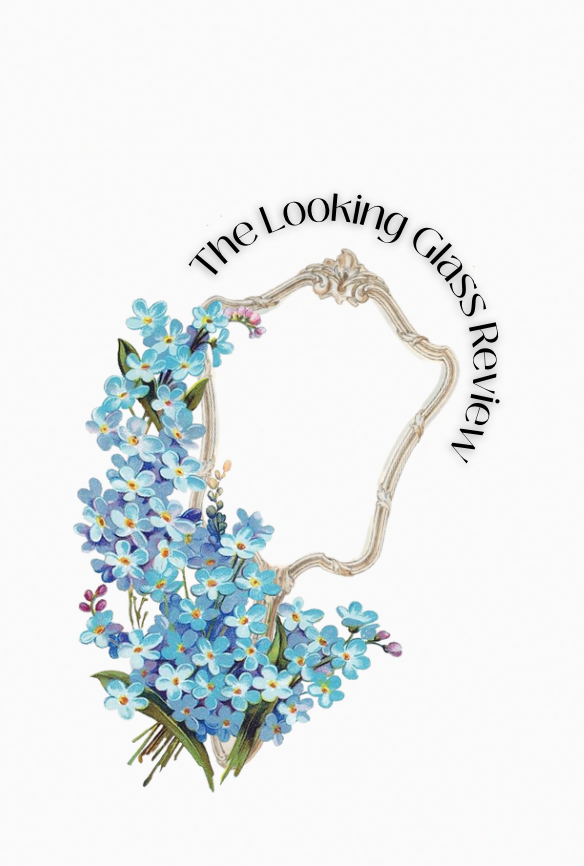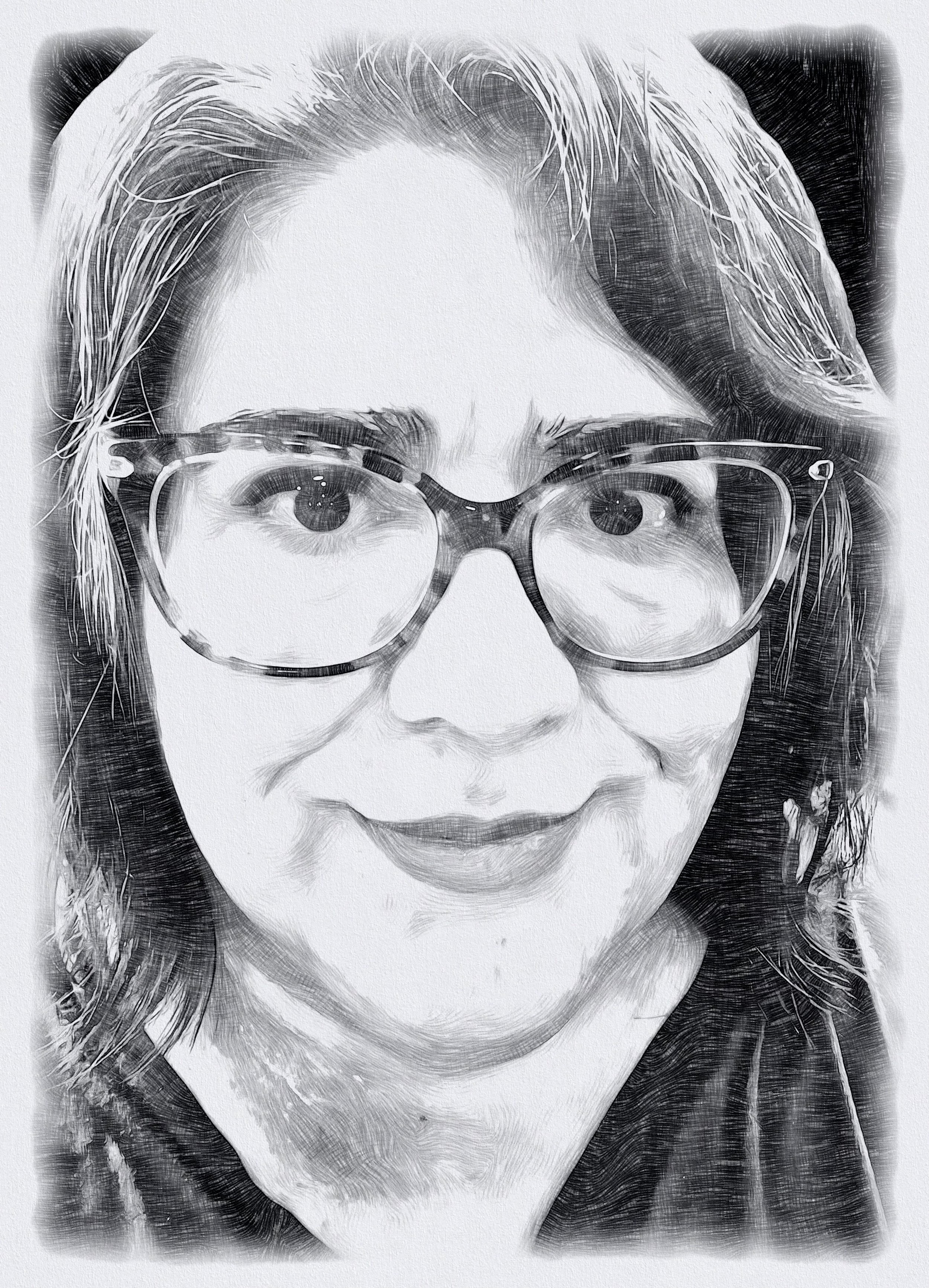Karen Quickley: Interview & Portfolio
I: Hi Karen! I greatly appreciate you taking the time to be interviewed by us today! The Looking Glass Review and I enjoyed reading your poetry, and are excited to get to know you as an individual!
K: Hi there! Thank you so much. It is such a pleasure to be included in this special issue.
I: To begin, I understood that your poem had an ekphrastic nature- do you often tend to write ekphrastic poetry, or was that a new stylistic choice for your poetry?
K: Yes, this poem was very much inspired by Marc Chagall’s painting “The Birthday.” This was actually my very first ekphrastic piece. Ekphrastic poetry has intrigued me for a very long time, and I’m now interested in writing more of it. However, it’s best when the artwork can be published alongside the poetry–like you did for me.
I: What specifically about the painting “Birthday” by Marc Chagall inspired you to base your lovely poem on it? How did you make this decision?
K: Thank you for asking and making me beam with delight. Gosh, it’s a boldly joyful and romantic painting, isn’t it? It was the depiction of the supernatural surprise “kiss” bestowed from man to woman that reminded me that I’d rather not be single. When you’ve been single as long as I have, you can easily forget about all that the right partner can offer. Life can be considerably more wonderful with the right man (or woman) by your side.
Writing this poem was not a conscious decision. I saw this painting online somewhere, and it was around the time I was journaling a lot about a man I’d met online who lives quite a distance away from me and who’d caused some stirrings in me (to say the least). I had come to the end of one journal, opened a new one, and wrote this piece by hand in black ink pretty much as it appears in the pages of this issue of your journal. Now I’ve folded it into an envelope, and it’s in my purse to be taken to my safe security box at the bank. Something told me to keep the original. Things like that happen to me at times, and I can’t be alone in that.
I: One of my favorite stanzas in your poem was as follows:
“Love—
remaining in its
cavity—
will it grow rancid?
Can there be
a stagnation
of one’s heart?”
I was wondering, when writing such insights, for lack of a better word, what is your process- how is it that you brainstorm the subjects and discover the inspired words for your poetry?
K: I’m so grateful that “question” interests you, and I’m glad that you asked me about it.
I do most of my thinking in my journal. I journal at least once on most days, and it helps me process things both emotionally and intellectually. And for quite some time I’ve physically felt a build-up within me of what feels like love that I’ve not been able to give yet because I’ve not dated anyone in over 13 years and have had no children thus far. Anyway, I’m also very imaginative and can easily take an idea and run with it–at least symbolically. Five months after having written this poem, I suspect that love can be released from within, rather than being held in to rot or wither, or whatever. Some may chuckle at my notions here, and that doesn’t bother me. It’s worth mentioning, too, that it was just before Valentine’s Day when I wrote this piece, and that holiday almost always awakens in me a hunger for romance.
I: Now a less related question, who is your favorite poet, and why?
K: Thank you so much for asking this question as well! As I’ve much poetry yet to read, this may or may not change, but for me it’s a “tie” between Anne Sexton and Mary Oliver. I know–very different poets.
I’ve admired Anne Sexton and her poetry since my adolescence. It’s always felt like Anne was a part of me, or we have had even more in common than mental health problems and suspicion of sexual abuse in our childhoods, though those are significant similarities. I guess I’ve felt that her poetry speaks from a part of me I didn’t know was there until I discovered her writing through a monologue of hers that I was assigned in an acting class many years ago.
As for Oliver, I can easily explain that her poetry takes me to the same wonderful, meditative place I enter in my being when I am alone in nature. Only those two things take me to this favorite place where I feel most at home and most like my true self. I love how contemplative her writing is. My favorite poems are “The Rose” and “Red Bird.” And I should have listed “Red Bird” first.
I: To my understanding, in addition to being a poet, you have a blog/Substack? I am curious about what content goes on there and was wondering if you could share a few of the important pieces you have published through this platform.
K: Yes–yes, I do. Thank you for mentioning my Substack. It’s called “A Poet in Love (A Poet’s Journey),” and I’m figuring this thing out as it goes.
I created this “stack” to gain online exposure for my writing. Pretty regularly, I post updates there on my writing progress and on other parts of my life. I also approach this project as an opportunity to share my life story as it seems appropriate because that’s what led me to this interesting poetry “place.”
Poetry was never a very conscious choice for me. Rather, poetry “happened” to me. And when I veered away from it after graduating from college, in time I was brought right back to it, thanks to a membership at an organic cooperative farm in the Michigan town where I used to live. Spending time alone in nature–in their community gardens–awakened my dormant “true self.” She stood up there, stretched, and had some things to say.
This recovery led to my revisiting my best college poetry, which led to my submitting it for publication. And now all of my best early poetry–written just under 30 years ago, mind you–has been published. Thank you, Lake Village Homestead.
I’m not sure how much writing from the Substack you are interested in, so I will email you a link to one of my favorite posts that relates to some of what I’ve been talking about here.
I: Thank you! To get a better handle on you as a person, I would love to touch on your upbringing, and potentially your identity in modern-day, including how it has changed.
K: Like the poet Theodore Roethke, I was born and reared in Saginaw, Michigan, a sleepy member of the “Tri Cities” of the lower peninsula, close to the “thumb” of the Michigan “mitten.” Growing up, I even bought flowers numerous times from the Gaertner-Roethke Greenhouse, which the poet made famous with his poem “Child on Top of a Greenhouse.” Saginaw has at times thrived and would have been named the State capitol if there was a smaller mosquito population there, but it’s been aching economically since General Motors pulled out some time ago.
My childhood was a happy one, and my parents permitted me to live an independent “second life” after school hours from grades nine through 12. I was fully engaged during those years in school and community theatrical productions. In all, I think I was in about 12 different shows, though I never had very big roles. Most of my memories of doing homework during these years were backstage somewhere. I’m very fortunate to have had so much fun during my teen years. There were so many wonderful adults engaged with the productions who were good influences in my life, especially the community theater director, Bob Sorbera.
Now, I will tell you that I just turned 49 in early June this year, and it’s been a very long, strange journey to where I sit, here, telling you all of this. That story is far too long and involved to share here, but I will tell you that since becoming an adult, I came to realize that I am bisexual and that although my childhood was happy, it was in some ways damaging to me.
I still love theatre, cats, gardening, and many other things (and people), but I’ve evolved over time rather remarkably. Now you’ve given me something upon which to meditate, and perhaps I’ll consider writing in my next Substack post about the changes in my identity since childhood. I think so often about so many things–it’s probably funny that I never previously considered this, specifically.
I: How did you interpret the theme “Motherhood, Martyrs, Misfits” with your knowledge and lens?
K: I interpreted it like an exciting writing exercise. It felt like you wished to invite writing on these three subjects to see how they may relate.
I: Precisely! Did you feel any aspect of this theme had a strong connection to your personality or the essence of yourself?
K: Well, I can say that I spent the past 20 years or so wishing I could become a mother, and I am the ultimate misfit.
I: If you were to submit another piece towards this issue, what would it be? Would you choose from your existing collection or write something original?
K: I would write something original regarding the fact that I’ll probably never be a parent.
I: If you ever end up writing a piece on this experience, I would love to read it- you have such a talent for portrayal of the human condition, and overall an amazing connection to the written craft! Thank you for an amazing interview!
K: I really appreciate the kind words, and I am likewise thankful for an amazing interview!

